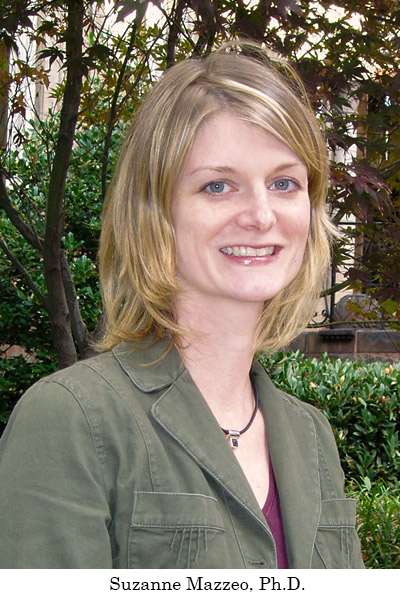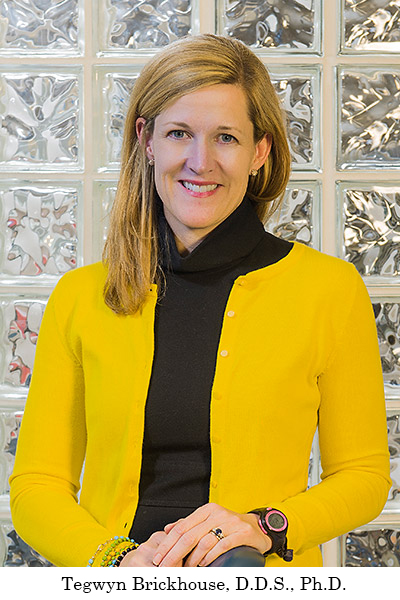Translating research into policy
iCubed oral health core members receive training through Wilder School's Office of Public Policy Outreach
By Jena K. Gray

Suzanne Mazzeo, Ph.D., and Tegwyn Brickhouse, D.D.S., Ph.D. have been accepted as 2018 Translational Research Fellows through the Office of Public Policy Outreach, a division of the Virginia Commonwealth University’s L. Douglas Wilder School of Government and Public Affairs.
Drs. Brickhouse and Mazzeo are members of VCU Institute for Inclusion, Inquiry and Innovation (iCubed)’s Oral Health in Childhood and Adolescence transdisciplinary core. The Translational Research Fellowship will teach principles and provide practical tools to translate their individual research and the iCubed Core’s research into public policy.

Suzanne Mazzeo, Ph.D. is professor and director of clinical training in the counseling psychology program. Tegwyn Brickhouse, D.D.S., Ph.D., is interim chair for the department of oral health promotion and community outreach, director of the oral health services research core through the VCU Philips Institute for Oral Health Research and director of VCU iCubed’s oral health in childhood and adolescence transdisciplinary core.
Beginning in 2017, L. Douglas Wilder School of Government and Public Affair’s Office of Public Policy Outreach offers the Translational Research Fellowship to around 10 VCU faculty members from various departments. These fellows are paired alongside experienced policy communicators for one-on-one mentoring in order to relate their areas of expertise to inform public policy within Virginia.
“The work we will accomplish through this fellowship,” remarks Dr. Brickhouse, “including developing a public policy brief and interacting with policymakers, will serve to bring more awareness that oral health is related to overall health and impacts all Virginians.”
Dr. Mazzeo recognizes the skill gap that this fellowship seeks to fill. She shares, “We’re not trained in graduate school how to communicate our findings with the public or with policymakers – we’re trained to communicate our research within academic journal articles and among other academicians.”
“Getting our research out of the ivory tower, so to speak, and out into the community through working with policymakers and the public,” expresses Dr. Mazzeo, “could very well have far greater impact than any one, single academic journal article.”
Dr. Mazzeo understands the foundational importance of communicating research findings with other scientists for the sake of furthering and extending the collective knowledge base. However, Dr. Mazzeo reiterates that a dual approach, perhaps, could enable one to make profound and longitudinal impact through affecting multiple facets of society simultaneously: the Academy as well as the community by way of policymakers’ legislation.
Dr. Brickhouse recognizes this fellowship as an opportunity to bring real stories of children’s oral health disparities to the foreground of legislators’ view.
“As a pediatric dentist, I see kids in pain. I see the challenges and barriers they face to get treatment for severe oral infections,” recounts Dr. Brickhouse.
“I believe that every child deserves the opportunities to prevent these types of diseases in the first place: to enter grade school healthy and ready to learn. With establishing a dental home by age 1, it is possible for these kids to have the same baseline for oral health as other children. I know that this is an achievable reality – that is why it is important to convey these stories into dental public policy."
Both Drs. Brickhouse and Mazzeo believe that in a world wrought with alternative facts and pervasive distrust of scientific findings, it is increasingly more difficult to convey legitimate research with the public successfully.
“Within the context we find ourselves,” Dr. Mazzeo shares, “it is that much more important to learn how to bridge divides between research and the public and to convey effective interventions and significant findings. This all with humility – without sounding elitist.”
In the case of Dr. Brickhouse’s ongoing work, she explains, “it is vital that policymakers have access to oral health data among underserved populations” so that broader dental public health policy can account for the needs of the most vulnerable populations.
Dr. Mazzeo focuses her research on unhealthy eating, obesity, and binge eating within children and family contexts. Topic areas, she says, that “affect everyone.” Dr. Mazzeo references studies demonstrating that “small changes make a big difference in what people eat.”
She shares, “Whether it’s how we advertise, where we locate foods on the grocery shelf, the length of recess time at school, the age at which we stop recess in schools…There are so many small changes we each can make that truly affects change.”
Within the context of the iCubed oral health in childhood and adolescence transdisciplinary cores, both Drs. Brickhouse and Mazzeo note that the Translational Research Fellowship will increase their capacity to communicate research more effectively within the communities they work.
“iCubed’s work, by nature, is involved within the community and likewise the community is involved within iCubed. We have to constantly communicate research with community members and deliver information in a relevant and meaningful way,” shares Dr. Mazzeo. “The Translational Research Fellowship can only help increase our capacity to communicate this and other research more effectively to policymakers and the community-at-large.”
About iCubed
iCubed at Virginia Commonwealth University (VCU) is a cutting edge institute focused on catalyzing collaborative connections between the university and the community at large through innovative academic and research programs. Our transdisciplinary core teams collaborate with key community members in order to develop holistic solutions to 21st century urban challenges within the Commonwealth. For more information about iCubed or to apply to one of the transdisciplinary core teams, please visit: icubed.vcu.edu.

